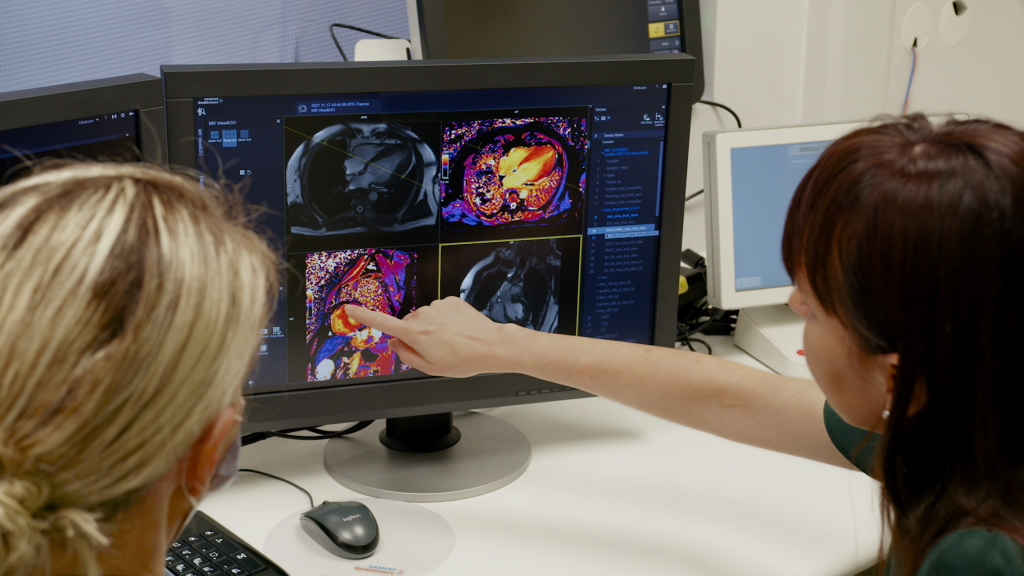-
Expert Alert: Mayo Clinic Healthcare cardiologist explains link between diabetes, heart disease

LONDON — The number of people worldwide with diabetes is rising and with diabetes comes a higher risk for heart disease. Gosia Wamil, M.D., Ph.D., a cardiologist at Mayo Clinic Healthcare in London, explains the connection between these two serious, chronic diseases.
People with Type 2 diabetes are up to four times more likely than the general population to die from cardiovascular causes, leading physicians to recognize the need to reduce heart disease risk in people with diabetes rather than only managing their glucose, or blood sugar, levels, Dr. Wamil says.
“Positive lifestyle changes such as quitting smoking, losing weight, exercising more, developing a healthy diet and controlling blood pressure can all contribute to better heart health,” Dr. Wamil says. “Studies have shown that by achieving good control of these cardiovascular risk factors, we not only significantly improve quality of life but most importantly prolong the lives of people with diabetes by on average of eight years.”
Heart disease and diabetes are chronic conditions that in most cases cannot be cured, Dr. Wamil says: Diabetes can damage blood vessels and make the heart muscle stiffer, which eventually leads to problems with fluid retention and heart failure. People with diabetes also have higher risk of accelerated coronary artery disease and heart attacks, she adds.

Due to nerve damage caused by diabetes, patients may not feel the chest pain or other types of chest discomfort that may signal something is wrong with the heart, so heart disease may not be detected until it is advanced and fewer treatment options are available, Dr. Wamil says.
“The recent development of cardiac imaging techniques such as advanced echocardiography, cardiac CT and cardiac MRI brings hope that we will be able to detect diabetic heart disease earlier and prevent its serious consequences,” Dr. Wamil says.
Dr. Wamil is using advanced medical imaging to study why the hearts of people with diabetes suffer more extensive injury after heart attacks and why those with diabetes develop heart failure more often than people with normal glucose control. Her research also involves the use of large sets of data and artificial intelligence to identify subgroups of people with diabetes who may respond best to certain treatments.
“There are many subtypes of diabetes that respond differently to medications,” Dr. Wamil says. “Identifying patients who will benefit most from new treatments offers a promise that in the future we will be able to offer people with diabetes truly personalized therapeutic plans.”
Over the past few years, new antidiabetic therapies with proven heart benefits have been made part of clinical guidelines, she notes.
“We have also collected strong evidence that weight loss can reverse diabetes in some patients and that lowering blood pressure with drugs known as ACE inhibitors and angiotensin II receptor blockers can reduce the risk of developing diabetes,” Dr. Wamil says. “This is an exciting time in our field because we have multiple therapeutic options and understand better how to reduce the risk of heart problems in people with diabetes.”
###
About Mayo Clinic Healthcare
Mayo Clinic Healthcare, located in London, is a wholly owned subsidiary of Mayo Clinic, a not-for-profit academic medical center. Mayo Clinic in the United States is ranked No. 1 in more specialties than any other hospital by U.S. News & World Report for a reason: quality of care. Mayo Clinic Healthcare is the United Kingdom’s front door to that unparalleled experience. Visit Mayo Clinic Healthcare for more information.
About Mayo Clinic
Mayo Clinic is a nonprofit organisation committed to innovation in clinical practice, education and research, and providing compassion, expertise and answers to everyone who needs healing. Visit the Mayo Clinic News Network for additional Mayo Clinic news.
Media contact:
- Sharon Theimer, Mayo Clinic Public Affairs, newsbureau@mayo.edu







